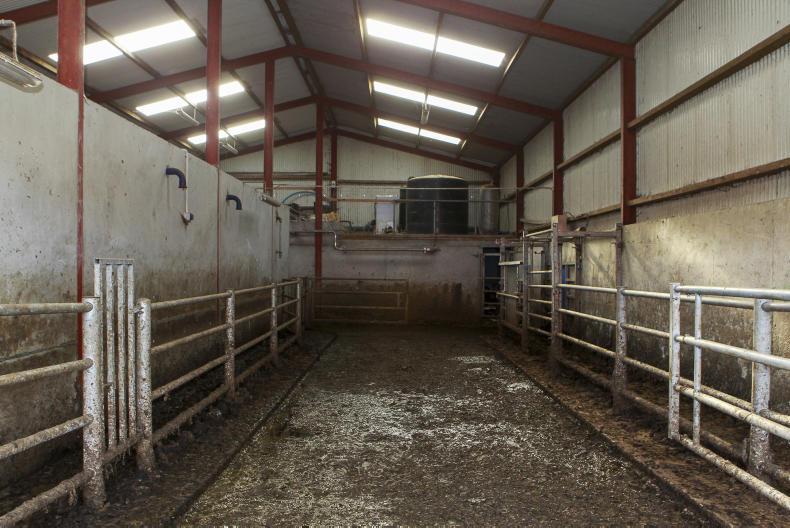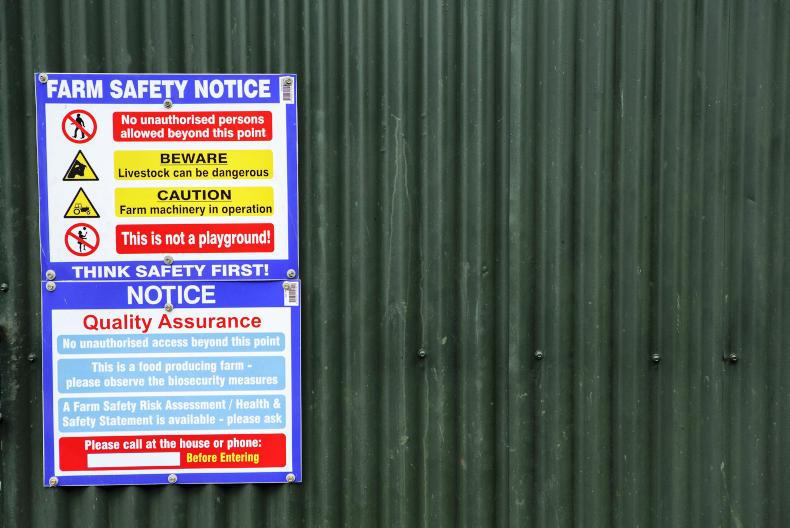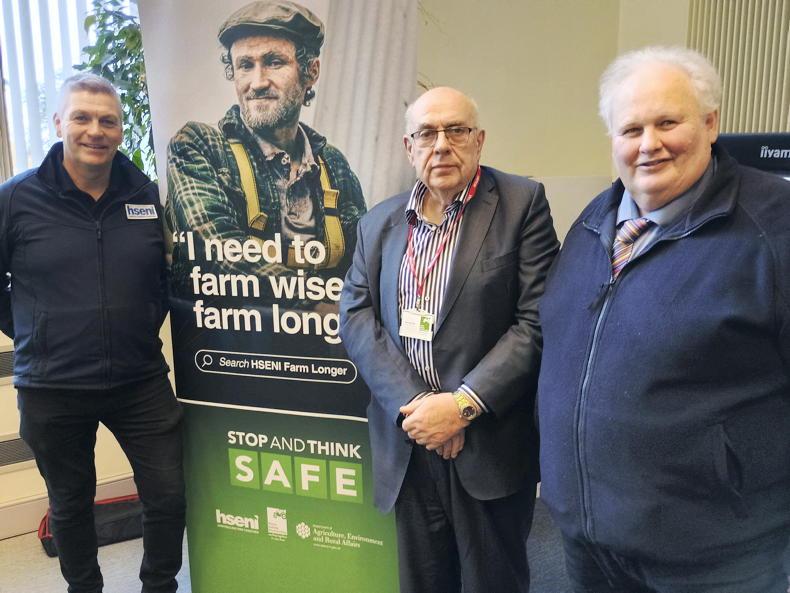The ESRI sampled more than 800 farmers from a survey carried out by the Health and Safety Authority (HSA), which found that farming had a fatality rate of 10 times the average across all occupations between 2009 and 2015.
The farmers in the study were all male and self-employed and none of them had regular paid employees.
The report examined areas in which farmers take risks on farms. It also looked at whether or not those risks are linked to accidents or near misses.
The study examined six jobs where farmers routinely fail to take adequate safety precautions.
Getting help with difficult jobs.Using correct safety gear.Using PTOs or machinery guards.Checking that machinery is in good working working order.Using restraining or handling facilities around livestock.Keeping chemicals stored correctly.Unmarried men take risks
The ESRI also examined the demographics which are most likely to take risks on farms.
The report found that unmarried farmers were more likely to take risks in not checking machinery.Farmers with larger farms were more likely to take risks by not routinely using safety gear.Most dangerous occupation
Author of the report Dorothy Wilson said policies need to be implemented to curb farm accidents and deaths.
“Farm safety is a critical issue. In the last seven years, 138 people have been killed in farm accidents, making farming the most dangerous occupation in terms of fatalities. The results of this report highlight the significance of getting help with difficult jobs and checking machinery in reducing the risk of accidents in farming.
“Future policies should emphasise the importance of getting help with difficult tasks on the farm, as the research indicated that failing to do so is associated with a higher risk of accidents and near misses,” she said.
Labour shortage
Reacting to the ESRI report, IFA Farm Family Chairperson Maura Canning said addressing the developing labour shortage on farm is central to improving farm safety. "For example, the shortage of skilled workers in the dairy sector has resulted in an increase in working hours for many farmers, which is of concern from a health and safety and quality of life perspective,” she said.
The IFA has made a submission to the Department of Jobs, Enterprise and Innovation calling for work permits to be issued to skilled farm workers from non-European countries.
Read more
Man dies in tractor accident
The ESRI sampled more than 800 farmers from a survey carried out by the Health and Safety Authority (HSA), which found that farming had a fatality rate of 10 times the average across all occupations between 2009 and 2015.
The farmers in the study were all male and self-employed and none of them had regular paid employees.
The report examined areas in which farmers take risks on farms. It also looked at whether or not those risks are linked to accidents or near misses.
The study examined six jobs where farmers routinely fail to take adequate safety precautions.
Getting help with difficult jobs.Using correct safety gear.Using PTOs or machinery guards.Checking that machinery is in good working working order.Using restraining or handling facilities around livestock.Keeping chemicals stored correctly.Unmarried men take risks
The ESRI also examined the demographics which are most likely to take risks on farms.
The report found that unmarried farmers were more likely to take risks in not checking machinery.Farmers with larger farms were more likely to take risks by not routinely using safety gear.Most dangerous occupation
Author of the report Dorothy Wilson said policies need to be implemented to curb farm accidents and deaths.
“Farm safety is a critical issue. In the last seven years, 138 people have been killed in farm accidents, making farming the most dangerous occupation in terms of fatalities. The results of this report highlight the significance of getting help with difficult jobs and checking machinery in reducing the risk of accidents in farming.
“Future policies should emphasise the importance of getting help with difficult tasks on the farm, as the research indicated that failing to do so is associated with a higher risk of accidents and near misses,” she said.
Labour shortage
Reacting to the ESRI report, IFA Farm Family Chairperson Maura Canning said addressing the developing labour shortage on farm is central to improving farm safety. "For example, the shortage of skilled workers in the dairy sector has resulted in an increase in working hours for many farmers, which is of concern from a health and safety and quality of life perspective,” she said.
The IFA has made a submission to the Department of Jobs, Enterprise and Innovation calling for work permits to be issued to skilled farm workers from non-European countries.
Read more
Man dies in tractor accident









SHARING OPTIONS